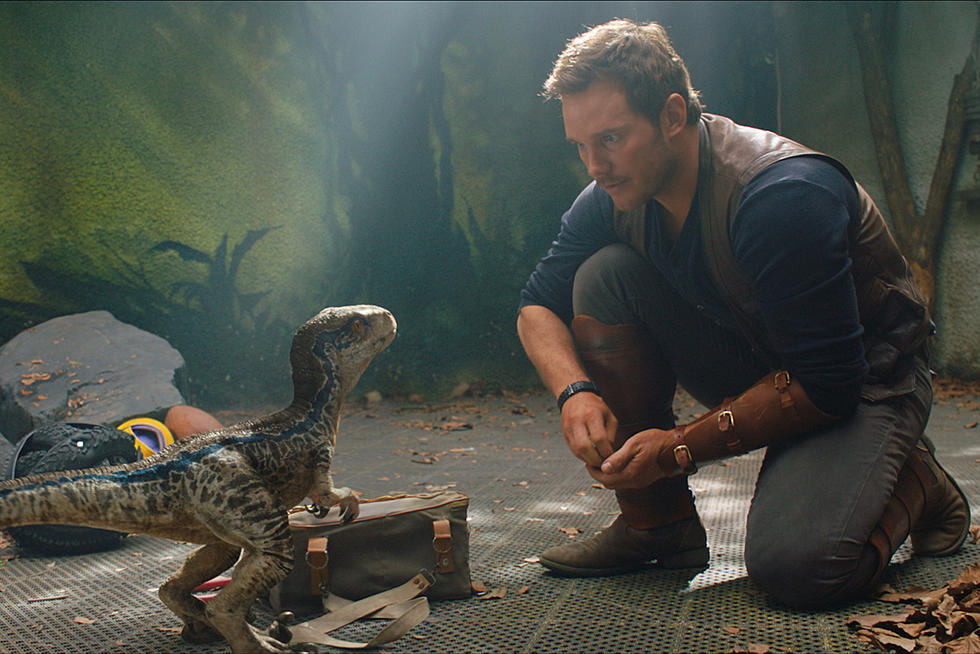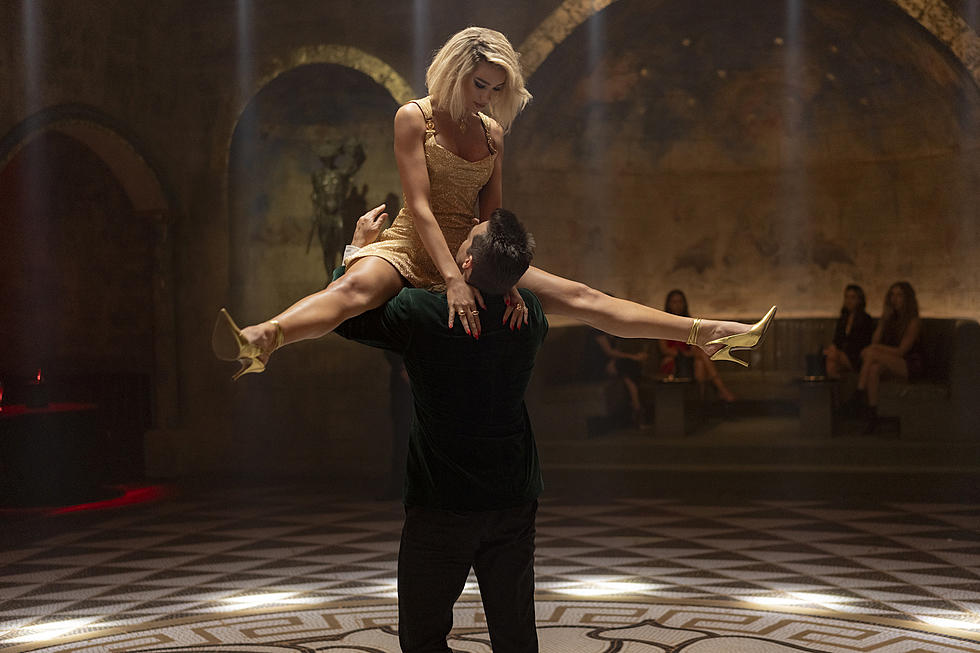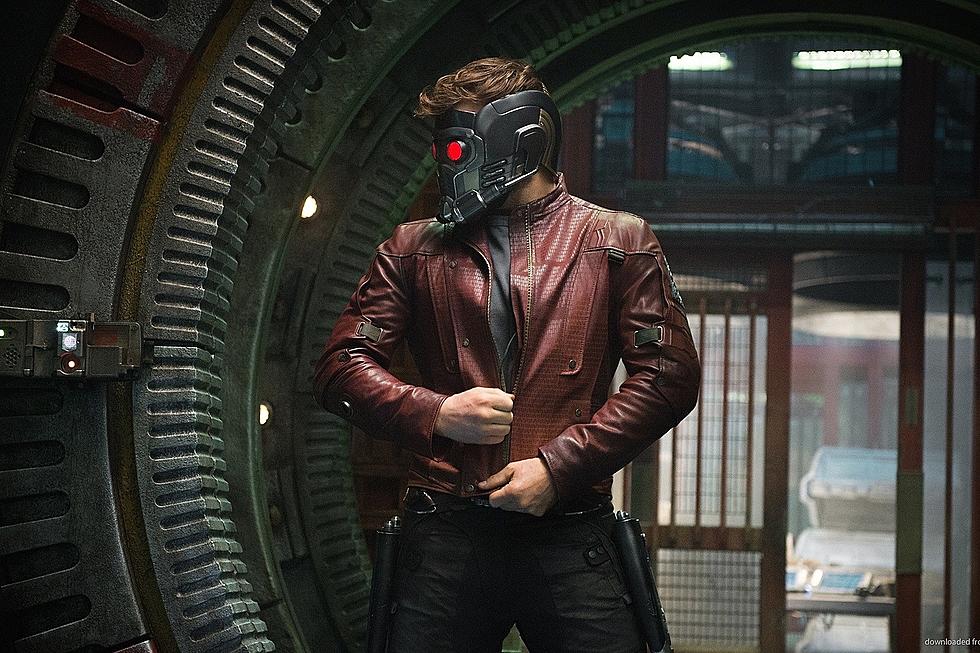
‘Jurassic World: Fallen Kingdom’ Review: The Park Is Gone. So Is Any Semblance of Logic.
In his very brief appearance in Jurassic World: Fallen Kingdom, Jeff Goldblum’s Ian Malcolm argues that mankind is on the verge of bringing about its own extinction through the reckless use of genetic engineering. Deliberately or not, the film appropriates a similarly jaundiced view of humanity. I don't know if i've ever seen a character in any movie do something as dumb as several of the things the characters in this movie do — and I wrote a whole piece ranking the dumb characters in the first Jurassic World.
That includes returning heroes Owen Grady (Chris Pratt) and Claire Dearing (Bryce Dallas Howard). In the last film, they narrowly survived the collapse of the Jurassic World park after a breakout by a genetically engineered camouflaged superdinosaur. Three years later, they are lured back to Isla Nublar by Benjamin Lockwood (James Cromwell), a wealthy industrialist and dinosaur enthusiast who is retconned by Fallen Kingdom as the former partner of the first Jurassic Park’s creator, John Hammond. Lockwood and Eli Mills (Rafe Spalls), the extremely pleasant overseer of Lockwood’s vast fortune, want to rescue as many dinosaurs from the island as they can before its long-dormant volcano explodes and makes these “de-extinct” animals re-extinct. They need Claire and Owen’s expertise and knowledge to help them do that.
After participating in the only vaguely human conversation either character will have in the film, Owen and Claire hop a flight back to the ruins of Jurassic World. They’re joined by Zia Rodriguez (Daniella Pineda), a paleoveterinarian, and Franklin Webb (Justice Smith), a systems analyst, mostly because the script requires the presence of someone with their specific skills. In short order, Owen and Claire’s benefactors are revealed to be less than benevolent, which comes as a huge surprise to them but not to anyone in the audience. (If only they had seen any of the previous Jurassic Park movies, they’d know not to trust anyone who claims to have an idealistic reason to go to a Central American island full of dinosaurs.)
I won’t spoil exactly what Lockwood’s company wants with the dinosaurs, but I will tell you that it involves Blue, Owen’s trained raptor from Jurassic World, and a new genetically engineered superdinosaur called an “indoraptor.” The contours of Fallen Kingdom’s second half, where Owen, Claire, and their chums are trapped in a facility with this indoraptor, seem vaguely inspired by Terminator 2, which took the intimidating villain of the first movie and then turned him into a good guy by pitting him against an even more advanced version of himself. Except the T-1000 from T2 was actually a major upgrade over the original Terminator, and that film found all kinds of clever new things to do with his liquid metal body. Even though it’s described as the “ultimate” hunter and predator, the indoraptor is just another dinosaur. If you’ve seen one, you’ve kind of seen them all.
That’s been a persistent problem for the Jurassic Park franchise since its first brilliant entry in 1993; trying to find inventive ways to deploy these dinosaurs when they are, at their core, one-trick ponies (if ponies had many razor-sharp teeth and a taste for human flesh). Fallen Kingdom’s strategy is to take the dinosaurs out of their natural habitat by relocating the second half of the film to Lockwood’s gothic estate, which at the very least (and it is the very least) gives you a few striking images of these carnivorous beasts slithering around in the moonlight.
Director J.A. Bayona (The Orphanage) has a way with striking, monstrous visuals, and Fallen Kingdom has a few. (It also has one extremely clever “chase” scene involving Chris Pratt trying to outrun a wall of lava.) But the plot mechanics by writers Derek Connolly and Colin Trevorrow (who also directed Jurassic World) needed to get from Isla Nublar to the Lockwood home are so laughable, as are any number of events required to bring about the slasher film-style chaos of the third act, that they repeatedly undercut the movie’s thrills. This isn’t just a film you need to “turn off your brain” to enjoy; nothing less than surgically removing your brain from your body would do the trick.
Connolly and Trevorrow’s script can’t decide whether dinosaurs are beautiful creatures worth saving, or monsters who must be destroyed at all costs, and the result is a deeply confused movie about the wonder of nature — and also about what it looks like when an indoraptor bites the hand clean off a man’s arm. “We can’t let them die!” Claire pleads, seconds after running for her life from a dinosaur for 30 straight minutes. If Bayona was stealthily trying to make a blockbuster where we root for the monsters to eat everyone, he couldn’t have done a much better job.
Every Jurassic Park sequel has had an uncomfortable relationship with logic, but even by this franchise’s standards, Fallen Kingdom is particularly ridiculous. All of the characters — even the heroes we’re supposed to root for — make baffling, indefensible choices. They put their trust in obviously evil people; they suggest solutions to problems that are infinitely more dangerous than the problems themselves. They build underground laboratories for secret dinosaur experiments with laxer security than my daughter’s daycare. The only characters who behave rationally in Fallen Kingdom, in fact, are the dinosaurs. At one point, someone refers to Blue as the “second smartest animal” on Earth. Based on the evidence in this film, I think it’s time for a recount.
Additional Thoughts:
-The character of Claire behaves so differently in this movie from the last one that I would swear the filmmakers of Fallen Kingdom hadn’t even watched the first Jurassic World if they hadn’t been its writers, producers, and director.
-Owen Grady is like Star-Lord minus everything that is good about Star-Lord.
-How have they now made two Jurassic World movies without having Chris Pratt say “You’re my boy, Blue!” even once?
More From ScreenCrush









